Ever wondered what happens to those coffee grounds after you brew your perfect cup of morning coffee? If you’ve faced a clogged drain or two, you might have questioned whether those grounds really dissolve or just disappear down the sink.
Well, the short answer is that they don’t dissolve and can lead to some pesky plumbing problems. Luckily, there are a few fail-proof ways you can dissolve coffee grounds and never worry about clogged drains again.
I’ll dive deep into the world of coffee grounds, debunk a few myths, and share some effective methods to manage your used coffee.
What Dissolves Coffee Grounds?
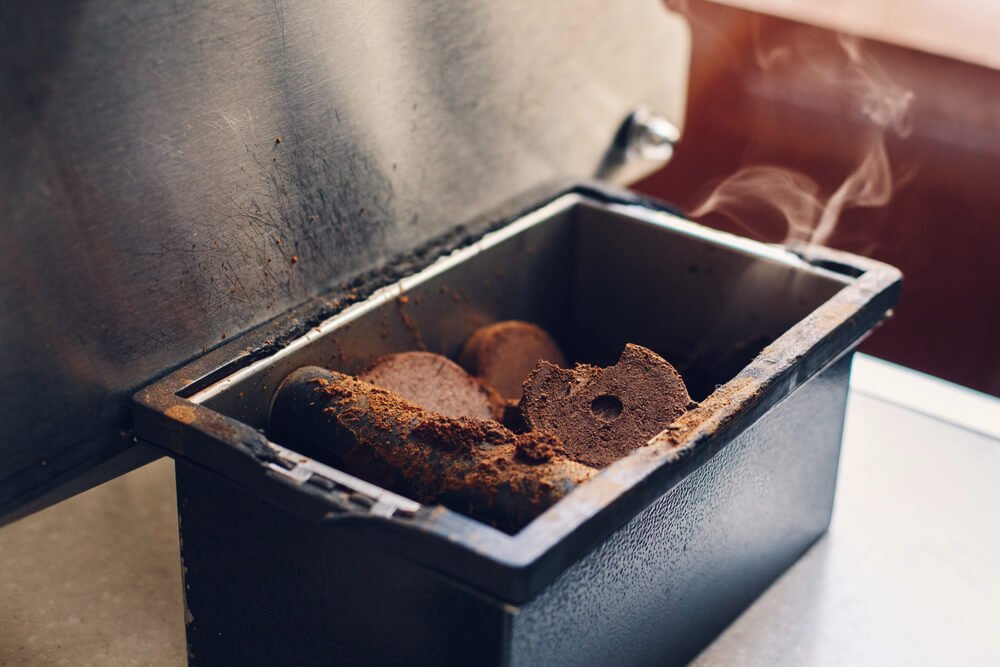
You can use a natural method to dissolve coffee grounds and clear them from your drains using baking soda and vinegar. Here’s how it works step-by-step:
- Pour a cup of baking soda directly into the drain.
- Follow it with a cup of white vinegar. The mixture will fizz and bubble, which helps to break up the coffee grounds and other greasy residues.
- Wait for about 10 minutes to let the reaction do its work.
- Flush the drain with boiling water. The hot water helps to move the loosened debris through the plumbing.
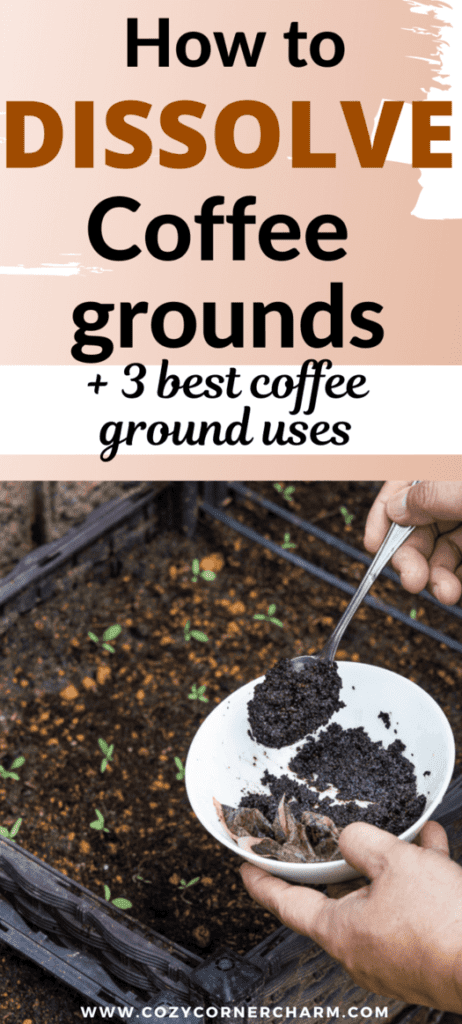
Effective Dissolution Methods
Managing coffee grounds effectively doesn’t have to be complicated. In fact, the best way to prevent clogs is pretty straightforward: use ample water during the brewing process and make sure you dispose of the leftover grounds properly.
Here are a few tried-and-true methods to keep those pesky grounds from ruining your day—and your plumbing.
Compost Bin
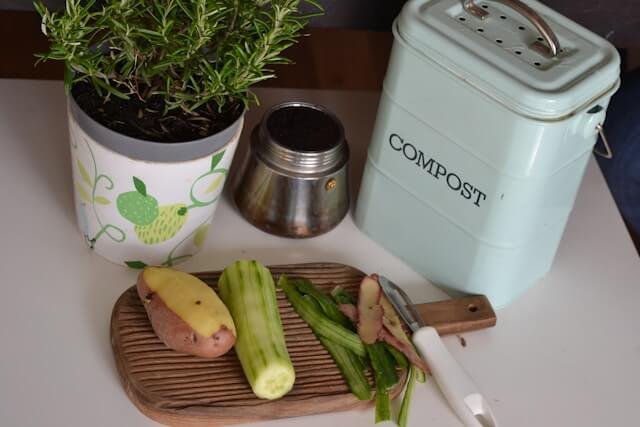
One of the most eco-friendly methods for disposing of coffee grounds is by adding them to a compost bin.
Coffee grounds are rich in nitrogen, a crucial element that helps promote decomposition in compost. This not only speeds up the composting process but also enriches the resulting compost with nutrients that are beneficial for your garden.
Plus, coffee grounds help attract worms, which are great for aerating the soil and further breaking down organic matter.
So, by composting your coffee grounds, you’re not just disposing of waste; you’re creating gold for your garden.
Trash It
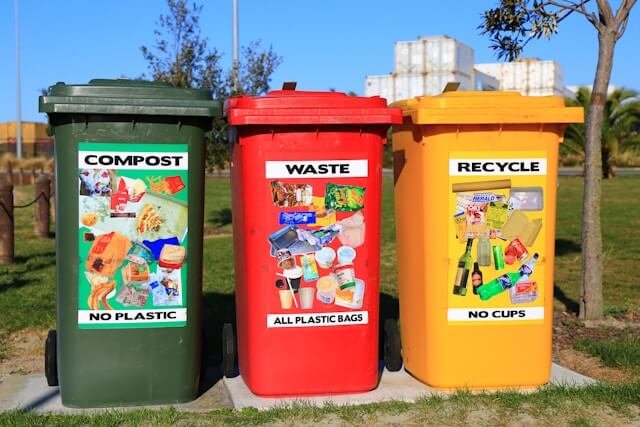
If composting isn’t an option for you, simply throwing your coffee grounds in the trash is a safe bet. This method ensures that the grounds won’t end up in your plumbing system, where they could contribute to a clog.
It’s a quick and hassle-free way to deal with grounds, especially if you’re in a rush or don’t have the space for a compost bin.
Pro tip: Make sure to seal them in a bag to prevent them from attracting pests or emitting odors as they decompose.
Professional Services
If you find yourself facing a clog despite your best efforts, it might be time to call in the professionals. Professional plumbers are equipped with the tools and expertise to tackle tough clogs without resorting to harmful chemicals.
They can use methods like hydro-jetting, which uses high-pressure water to blast away clogs, or mechanical drain snakes that physically remove blockages.
Common Misconceptions
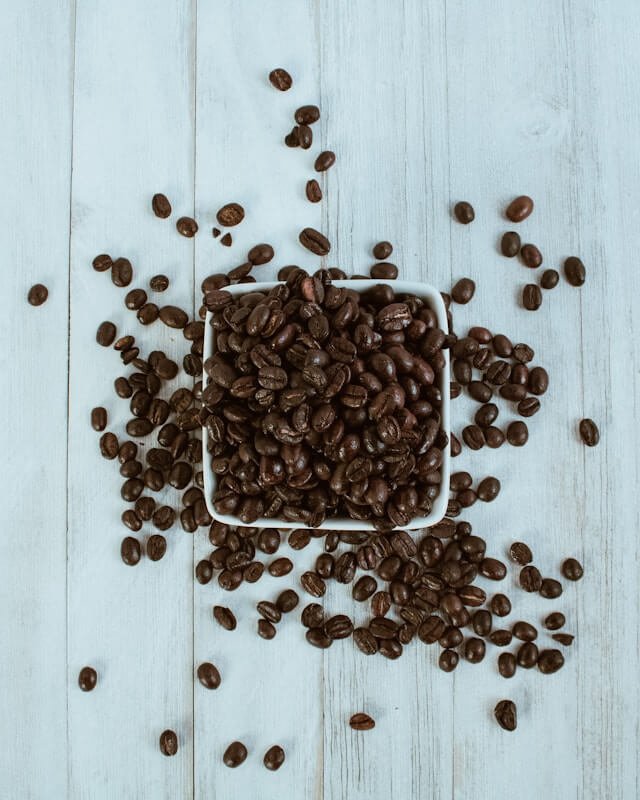
A prevalent myth among coffee enthusiasts and homeowners alike is the belief that hot water or using the garbage disposal will effectively deal with coffee grounds in kitchen drains.
This misconception likely stems from the idea that if something can be flushed down the drain, it should be, and that hot water can dissolve or break down anything.
However, coffee grounds are a different story. Once coffee grounds enter your kitchen sink, they begin to accumulate. Over time, this accumulation can lead to severe grease buildup, particularly because coffee grounds can amalgamate with oil and other food residues present in the sink, forming a stubborn, sludgy mass.
This problem is compounded in homes with septic systems. Septic tanks rely on bacteria to break down organic waste, but non-dissolvable materials like coffee grounds can settle at the bottom, accumulating and eventually disrupting the tank’s functionality.
This can lead to blocked drain fields, slow drainage, and even sewage backups, all of which are costly and unpleasant to manage.
Preventative Measures
Loving your coffee doesn’t have to mean compromising your plumbing. Here are some proactive steps you can take to ensure that your coffee habit remains a pleasure, not a plumbing nightmare:
Use Filters
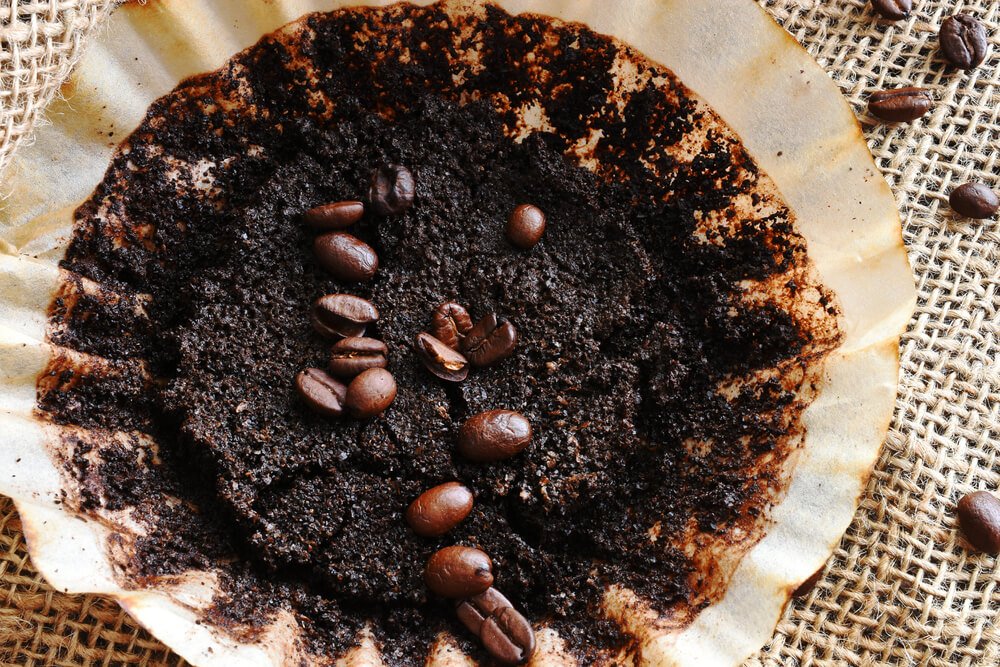
One of the simplest and most effective ways to prevent coffee grounds from causing blockages is to use filters. Paper filters are excellent for trapping fine coffee particles before they ever get near your sink.
If you want a more sustainable option, fine mesh strainers and reusable metal filters do a fantastic job of catching grounds during the brewing process.
Proper Coffee Maker Maintenance
To further reduce the risk of plumbing issues, regular maintenance of your coffee maker is essential. This includes cleaning it after each use and making sure you’re using the optimal ratio of water to coffee.
Ensuring that your coffee maker is in top condition can significantly decrease the likelihood of excess grounds slipping through and ending up in your sink.
Plus, it enhances the overall efficiency of your coffee brewing process, ensuring that each cup is as delicious as it is safe for your drains.

Alternative Uses for Coffee Grounds
Before you think about throwing away those spent coffee grounds, consider these clever and eco-friendly uses around your home:
Natural Deodorizer
Coffee grounds are excellent at absorbing odors due to their nitrogen-rich content which helps in neutralizing smells.
You can dry your used coffee grounds and place them in a clean cloth or an open container to act as a deodorizer.
This works wonders in spaces like refrigerators or cars, where unpleasant odors can linger. Just be sure to replace the grounds periodically to maintain their effectiveness.
Scrubbing Agent
Coffee grounds can also be used as a non-toxic scrubbing tool. Their abrasive texture helps in cleaning, yet they are gentle enough not to scratch surfaces.
Mix them with a bit of warm water and use the mixture to scrub away stuck-on food from pots, pans, and surfaces.
This method gives your old coffee grounds a second life and also reduces the need for harsh chemical cleaners.
Garden Magic
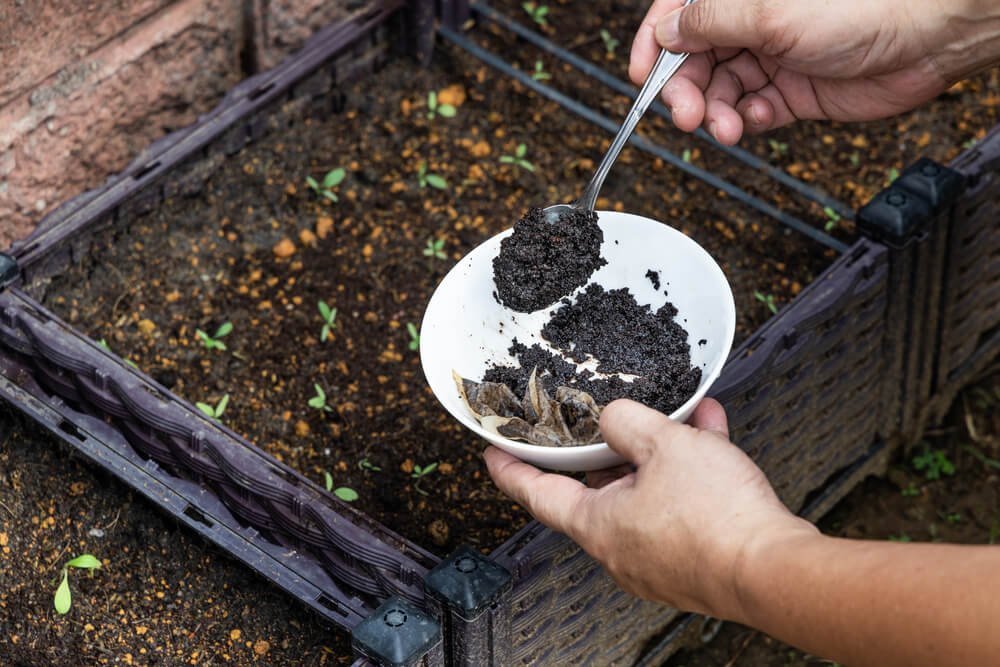
Coffee grounds can do wonders in the garden. They can be sprinkled directly onto the soil as a fertilizer, providing plants with essential nutrients like potassium, nitrogen, and phosphorus.
Plus, the texture and odor of coffee grounds make them a natural pest deterrent, helping to keep your garden free from common pests like ants and slugs.
If you’re an avid gardener, integrating coffee grounds into your garden routine can enhance plant health and vigor, making your green space more lush and vibrant.
What Dissolves Coffee Grounds: Final Thoughts
Coffee grounds don’t have to be a nuisance. With the right knowledge and a bit of effort, you can manage them effectively and keep your drains clear.
Remember, the best method to deal with coffee grounds is one that suits your lifestyle and keeps your plumbing healthy.
So next time you brew that optimum extraction of your favorite espresso grind, think about where your grounds will end up and choose the better option.
This post showed you what dissolves coffee grounds.
You might be interested in:
- How to Dry Coffee Grounds: Step-By-Step Guide + Storing Tips
- How Much Coffee for 45 Cup Coffee Maker?
- How Much Coffee for 12 Cups?

Marina is the writer behind CozyCornerCharm. She grew up on Turkish coffee, later discovering specialty brewing through her first V60, which inspired her ongoing coffee journey. She has written for Craft Coffee Spot, Home Grounds, and Barista HQ and now shares her experience here on her own coffee corner.



Leave a Reply